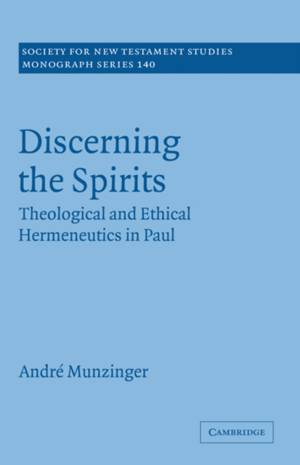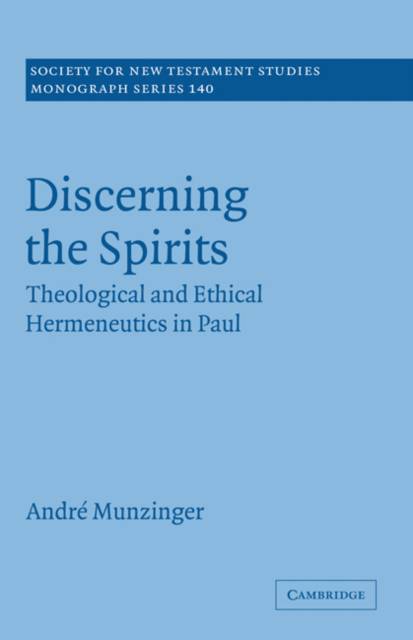
- Afhalen na 1 uur in een winkel met voorraad
- Gratis thuislevering in België vanaf € 30
- Ruim aanbod met 7 miljoen producten
- Afhalen na 1 uur in een winkel met voorraad
- Gratis thuislevering in België vanaf € 30
- Ruim aanbod met 7 miljoen producten
Zoeken
€ 183,45
+ 366 punten
Uitvoering
Omschrijving
How did Paul determine ethical and theological truth? Were all believers expected to be able to 'discern the spirits' (1 Corinthians 12.10)? This 2007 study shows that discernment must be understood against the backdrop of an extensive hermeneutic, by which Paul inherently relates ethical and theological knowledge. Understanding the will of God requires noetic and existential transformation, in short, the 'renewal of the mind' (Romans 12.2). Munzinger argues that Paul implies a process of inspiration in which the Spirit sharpens the discerning functions of the mind because the believer is liberated from a value system dominated by status and performance. The love of God enables all believers to learn to interpret reality in a transformed manner and to develop creative solutions to questions facing their communities. For Paul authentic discernment is linked to a comprehensive sense of meaning.
Specificaties
Betrokkenen
- Auteur(s):
- Uitgeverij:
Inhoud
- Aantal bladzijden:
- 256
- Taal:
- Engels
- Reeks:
- Reeksnummer:
- nr. 140
Eigenschappen
- Productcode (EAN):
- 9780521875943
- Verschijningsdatum:
- 2/08/2007
- Uitvoering:
- Hardcover
- Formaat:
- Genaaid
- Afmetingen:
- 161 mm x 217 mm
- Gewicht:
- 471 g

Alleen bij Standaard Boekhandel
+ 366 punten op je klantenkaart van Standaard Boekhandel
Beoordelingen
We publiceren alleen reviews die voldoen aan de voorwaarden voor reviews. Bekijk onze voorwaarden voor reviews.







